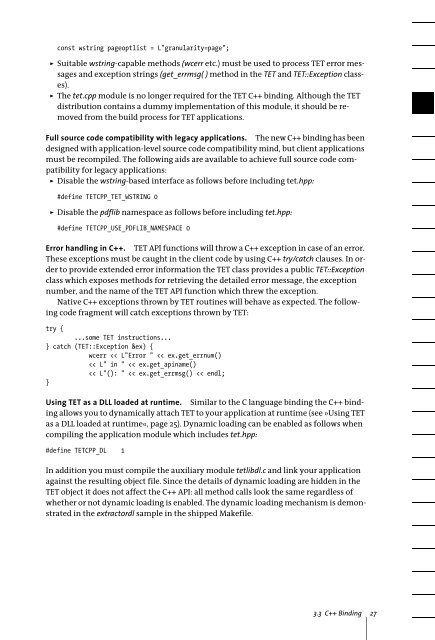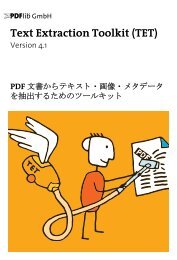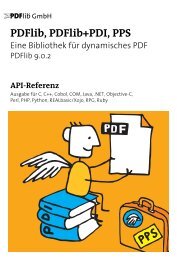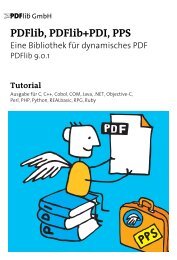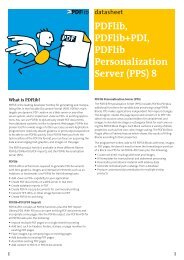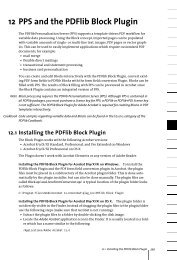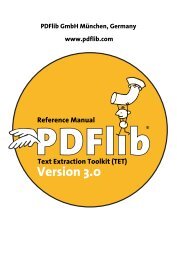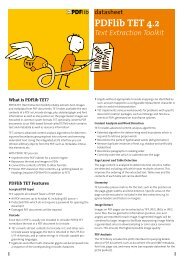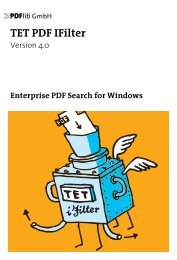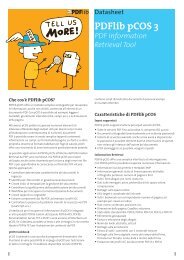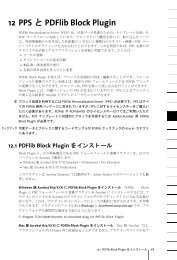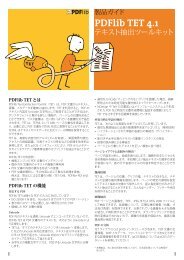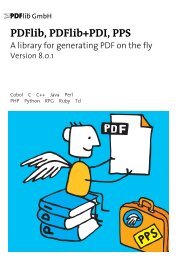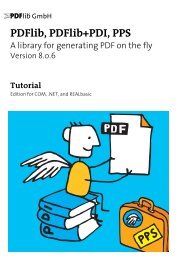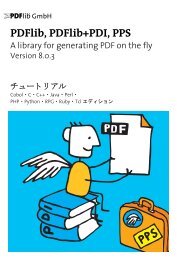PDFlib Text Extraction Toolkit (TET) Manual
PDFlib Text Extraction Toolkit (TET) Manual
PDFlib Text Extraction Toolkit (TET) Manual
Create successful ePaper yourself
Turn your PDF publications into a flip-book with our unique Google optimized e-Paper software.
const wstring pageoptlist = L"granularity=page";<br />
> Suitable wstring-capable methods (wcerr etc.) must be used to process <strong>TET</strong> error messages<br />
and exception strings (get_errmsg( ) method in the <strong>TET</strong> and <strong>TET</strong>::Exception classes).<br />
> The tet.cpp module is no longer required for the <strong>TET</strong> C++ binding. Although the <strong>TET</strong><br />
distribution contains a dummy implementation of this module, it should be removed<br />
from the build process for <strong>TET</strong> applications.<br />
Full source code compatibility with legacy applications. The new C++ binding has been<br />
designed with application-level source code compatibility mind, but client applications<br />
must be recompiled. The following aids are available to achieve full source code compatibility<br />
for legacy applications:<br />
> Disable the wstring-based interface as follows before including tet.hpp:<br />
#define <strong>TET</strong>CPP_<strong>TET</strong>_WSTRING 0<br />
> Disable the pdflib namespace as follows before including tet.hpp:<br />
#define <strong>TET</strong>CPP_USE_PDFLIB_NAMESPACE 0<br />
Error handling in C++. <strong>TET</strong> API functions will throw a C++ exception in case of an error.<br />
These exceptions must be caught in the client code by using C++ try/catch clauses. In order<br />
to provide extended error information the <strong>TET</strong> class provides a public <strong>TET</strong>::Exception<br />
class which exposes methods for retrieving the detailed error message, the exception<br />
number, and the name of the <strong>TET</strong> API function which threw the exception.<br />
Native C++ exceptions thrown by <strong>TET</strong> routines will behave as expected. The following<br />
code fragment will catch exceptions thrown by <strong>TET</strong>:<br />
try {<br />
...some <strong>TET</strong> instructions...<br />
} catch (<strong>TET</strong>::Exception &ex) {<br />
wcerr


